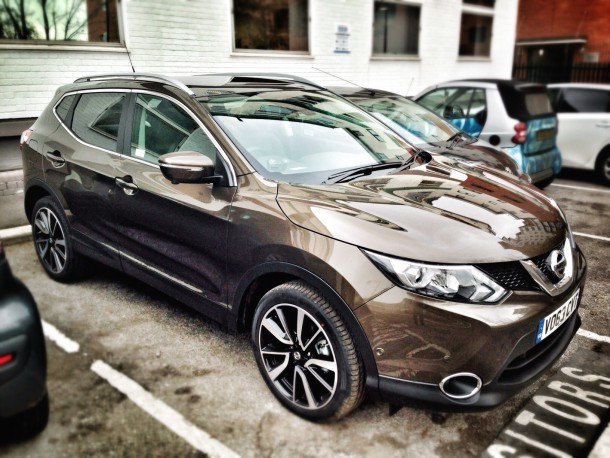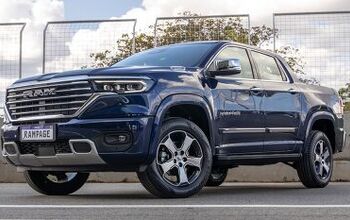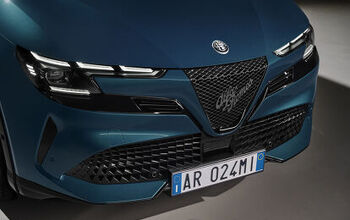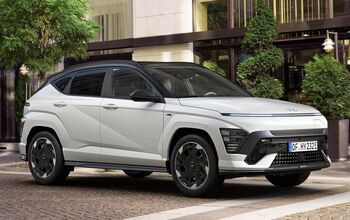Nissan Rogue Hybrid Imminent, Qashqai Replacing Rogue Select

Nissan will add a hybrid powertrain to the Rogue and bring the smaller, European Qashqai to the U.S., AutoGuide is reporting.
A few days ago, we reported that Nissan would be ending production of the last-generation Rogue in Japan, which is sold as the Rogue Select in the United States. Now it appears the Qashqai will effectively replace the Rogue Select in Nissan’s lineup, giving the Japanese automaker another small crossover to sell stateside.
And Nissan is selling the snot out of crossovers in the U.S.
Nissan made rumblings about a hybrid Rogue back in April and it believes the already huge market hasn’t yet been tapped.
“We haven’t hit the ceiling yet. We have more opportunity there if we can get our dealers more [crossovers],” Fred Diaz said, Nissan’s senior vice president of U.S. sales, said according to AutoGuide.
The Qashqai is built on a similar platform as the Rogue, but is 10 inches shorter, and also sports a 1.6-liter four-cylinder that may or may not make the ride over to the states.
No word yet on whether Canada will be getting the Qashqai.
In case you’re wondering:

More by Aaron Cole
Latest Car Reviews
Read moreLatest Product Reviews
Read moreRecent Comments
- Funky D There are WAY too many of what my youngest son calls grayscale (white, black, silver, gray) out there.I will pick literally ANY color (including that baby puke yellow found on new Chevy crossovers) over a grayscale color. But if every car I had was arrest-me red, I'd be find with that.What happened to the 60s~80s when you could choose from a pretty rich color palate when placing your new car order?
- Tassos Jeep again proving they stand behind freedom. The freedom to choose the fuel you use. I’ll take one in ”Right to express myself freely” pink.
- Jeff Good move on Cadillac's part. Not everyone is ready for an EV it will take more time to expand the charging infrastructure and more affordable EVs.
- 3-On-The-Tree I was never a fan of the newer dodge products but it’s still a shame that all the OEM’s are moving away from V8’s to turbo V6 and V4’s all in the name of emissions and better mpg.
- FreedMike I like the idea of EVs, but the idea that they're going to achieve 100% market penetration was a fantasy to begin with. Also worth noting; Cadillac is on track to sell well over 20,000 Lyriqs this year. Not too shabby. https://www.coxautoinc.com/wp-content/uploads/2024/04/Q1-2024-Kelley-Blue-Book-Electric-Vehicle-Sales-Report.pdf


































Comments
Join the conversation
Holy latte hipster junction, Batman! Now there's an on-trend commercial! I love my new Kash-Cow! ...I want to punch everyone in there, with some localvore sourced PBA-free gloves on. So this is the HRV competitor. I'll say this, it's better looking than the HRV. I saw my first one this past weekend, and it caught my eye in all black. It looks rather cheap and dated to my eye, like it was conceived in 2004. By Hyundai.
IMHO, Qashqai is too close to the word "quash", which probably won't go over well with CUV buyers, who apparently live in fear of being "quashed" on the roadways by semis or even larger more expensive SUVs. How about the Xterra II?